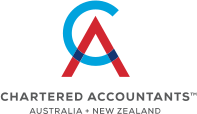As the world becomes smaller, more and more of us are working remotely and from all corners of the globe.
Come tax time, it often leads to the question, “What is my residency for tax purposes?”
It can be a surprisingly complex question to answer, both for new arrivals working in Australia as well as for Australian residents working abroad.
Understanding the answer to this question can make a significant difference to your tax liability. And it’s an answer that can change depending on your circumstances.
Knowledge is power!
Do I need to file an Australian tax return?
Whether you are an Aussie working overseas or a visitor working in Australia, there is a strong chance you will need to file an Australian tax return.
There are four basic tests the Australian Tax Office will use to make that determination.
The “Resides” test
This is the primary test. If you live in Australia, you will be considered an Australian resident for tax purposes. There are a range of factors that the ATO will apply to determine this including:
* whether or not you are physically living in Australia
* if you are working or holidaying in Australia
* if your family is with you
* where you socialise and who you live with
* your business or employment ties
* where the majority of your assets are located and maintained
If you don’t qualify under the “resides” test, you will still be considered an Australian resident for tax purposes if you satisfy any one of the other three tests below.
Domicile test
You will be considered an Australian resident if the ATO rules your permanent home is in Australia. The only exception is if that home is not your permanent place of abode.
The 183-day test
This applies only to visitors to Australia and determines whether you have been present in the country for more than half the year (183 days), with or without breaks. If the answer is yes, you will be considered a resident for tax purposes.
The Commonwealth Superannuation test
This test applies only to Australian government employees working at Australian posts overseas and who are members of a government superannuation scheme. Your entire family including children under 16 will then be considered Australian residents, irrespective of any other factors.
Types of residents for tax purposes
If you need to file a return with the ATO, you will fall into one of three categories and all are treated differently.
An Australian resident for tax purposes
You must declare all of your income from all sources worldwide.
A foreign resident
You have no tax-free threshold but only need to declare income and gains earned within Australia. You may be exempt from paying the Medicare levy.
A temporary resident
You only have to declare income and gains earned within Australia.
Get tax advice as soon as possible
Things get even trickier if you are a dual resident of Australia and a foreign country. If Australia has a double tax treaty with that country, a treaty tie-breaker test may be used to establish which country has the right to charge you tax.
More information can be found at the Australian Tax Office’s website here.
The blog provides general guidance. It is absolutely crucial to get specific advice from an experienced accountant based on your circumstances.
Contact us today to talk about your needs.
The information contained on this article is general in nature and does not take into account your personal situation. You should consider whether the information is appropriate to your needs, and where appropriate, seek professional advice from a financial adviser.
Taxation, legal and other matters referred to on this website are of a general nature only and are based on Nitschke Nancarrow’s interpretation of laws existing at the time and should not be relied upon in place of appropriate professional advice. Those laws may change from time to time.
Nitschke Nancarrow specialises in accounting, tax and financial advice for superannuation.
Contact us now for a no obligations discussion about your needs.














